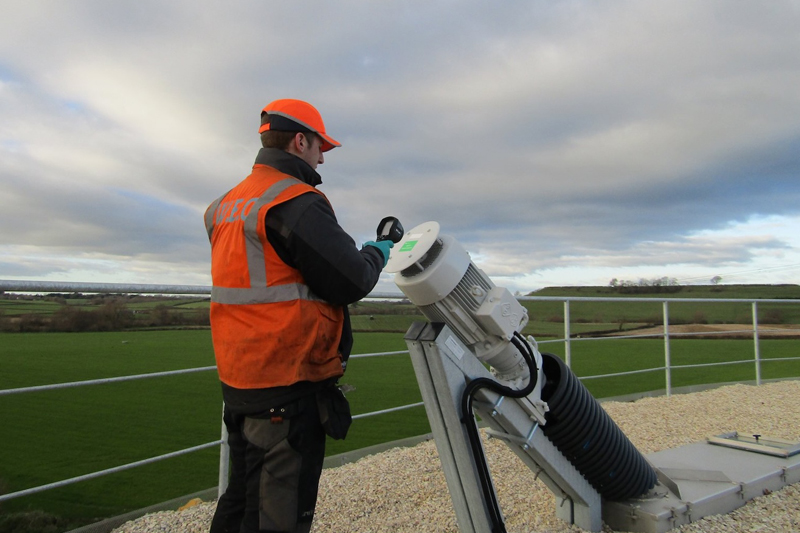Kilpboard explain why now is the time for UK electrical wholesalers to digitise
The UK electrical wholesale market, valued at £4.28 billion in 2024, is experiencing significant shifts driven by digital transformation and sustainability initiatives (AMA Research, 2024).
To remain competitive, electrical wholesalers are increasingly adopting digital technologies to enhance operations and customer service. By integrating advanced technologies, wholesalers can streamline operations, reduce errors, and enhance customer satisfaction, positioning themselves competitively in a rapidly evolving market. The timing has never been better for electrical wholesalers to embrace digital transformation.
What is digitisation?
Digitisation describes how companies can improve their processes and operations through digital technologies. For example, digitisation could involve implementing a new ERP system to streamline inventory management. Alternatively, it could provide real time stock visibility, helping electrical wholesalers in preventing costly overstocks.
In either case, such innovations are no longer just nice to have. These days, industry leaders see digitisation as essential to a successful, modern electrical wholesale business.
The evidence why speaks for itself. Early adopters routinely report that digitisation has helped them increase productivity, reduce operational costs, and quickly adapt to market changes ‘on the fly’ while having fully comprehensive control of their stock.
Should wholesalers invest in digital transformation today, or take a wait-and-see approach?
At klipboard, the new name for Kerridge Commercial Systems, we think the time to act is now, and for the following reasons:
Enhanced efficiency and productivity
Electrical wholesalers dealing with complex inventory and high-demand supply chains can replace inaccurate and labour-intensive paper-based systems with precise, real-time digital solutions. By adopting mobile technology on the shop floor and in the warehouse, businesses can eliminate paper duplication, streamline order processing, reduce costly errors, and improve stock management. This not only enhances overall efficiency but also cuts processing time, reduces waste, and helps wholesalers save thousands on administrative overheads.
Real-time data and analytics
Digital ERP systems provide instant insights and snapshots into a wholesaler’s daily operations. As a result, there’s no longer any need to spend days or hours running reports. All the data they need to make better decisions and improve performance is at their fingertips.
Also, using an ERP system makes identifying emerging trends much easier. When stock and balance sheets are input digitally, sophisticated algorithms make it much easier for users to successfully forecast demand.

Total inventory management
Keeping accurate stock records is crucial for electrical wholesalers, especially during busy periods. Digital ERP software gives wholesalers a suite of tools to manage every aspect of their inventory, helping them maintain optimal stock levels.
Additionally, by ensuring the right products are always available when customers need them, a fully digitised wholesale business is better able to maximise its sales all year round.
Enhanced customer service
In business, building trust through professional relationships is key, and today’s digitised electrical wholesalers can offer a seamless and personalised customer experience that their paper-based rivals can’t. For example, a digitalised wholesaler’s system will have customer relationship management (CRM) capabilities that help them see client preferences, purchase history, and overall engagement.
Accordingly, it’s easy for digitised wholesaler to offer customers tailored promotions. And, of course, faster and more accurate order processing is another example of how digitisation can help improve electrical wholesaler’s overall level of customer service.
Streamlined financial management
Wholesale businesses embracing digitisation can also optimise cash flow with integrated accounting and financial reporting features. It’s also possible to automate whole processing tasks, such as the administration of accounts payable, removing the need for paper administration, meaning wholesalers can now redeploy valuable resources where they’re needed most.
Enhanced supply chain management
Effective supply chain management is critical for electrical wholesalers’ reputations and cash flow. However, digitising this process through a cloud-based ERP system makes it easy to optimise procurement processes, manage supplier relationships, and ensure timely delivery of materials.

Compliance and risk management
One regularly overlooked but critical part of modern business is complying with industry regulations and standards. One of the easiest and most reliable ways of doing this is by digitising how your electrical wholesale business administers sensitive information. Users scan documents onto a secure, cloud-based ERP system, where they’re available for audits and inspections.
Integration with ecommerce
As the electrical industry increasingly moves online, ERP systems’ integration with ecommerce platforms means that wholesalers can tap into new revenue streams. By offering online ordering and customer self-service options, businesses can expand their reach and access new markets at any time.
Sustainability and waste reduction
Digitisation contributes to sustainability by optimising resource usage and reducing waste. Fully digital ERP systems encourage their users to send PDFs instead of printing and collating their user manuals online, again dramatically helping cut carbon usage. Further reductions occur in the full digitisation of paper-based processes and monitoring systems that help wholesalers eliminate unnecessary fuel waste with their deliveries.
Maximise sales
The Luckins online catalogue is an essential sales tool for electrical wholesalers, offering up to date product information, on over one million items from hundreds of manufacturers. With detailed specifications, images and related accessories, it helps wholesalers better meet customer needs.
By integrating Luckins enriched product data in to their ecommerce and in store experience through ERP software, electrical wholesalers can now see another benefit of digitisation and offer comprehensive product information, enhanced ecommerce capability and improved customer service.
Conclusion
Going digital is the only way electrical businesses can stay successful in an increasingly demanding and competitive marketplace. Those businesses that have yet to enjoy the benefits of digitalisation should act before they are left behind.
To learn more about how the ERP solutions and integrated apps from klipboard can help your business trade more profitably, click here
Find more industry opinions here





